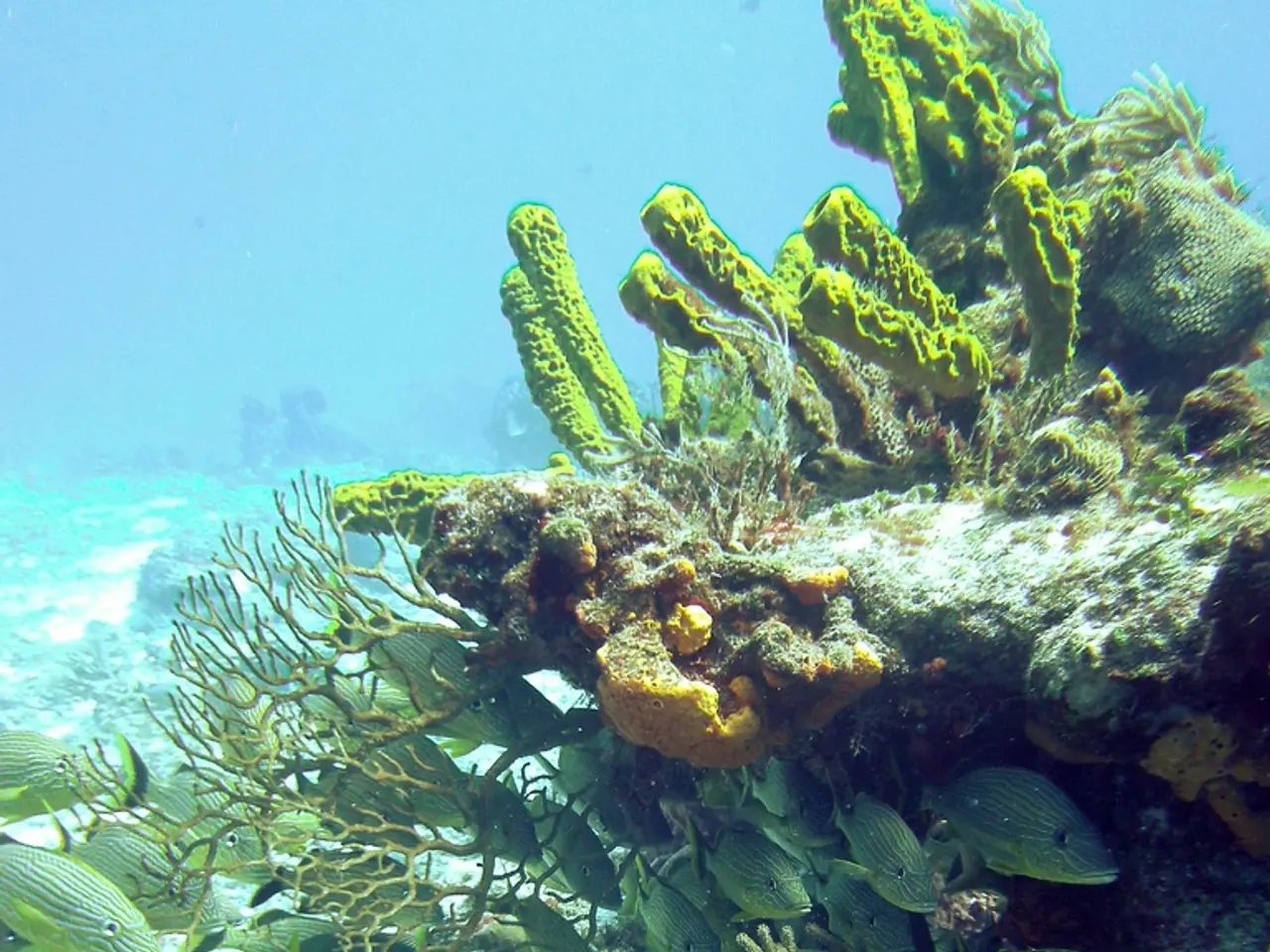Investigations Amidst the Pandemic: A Focus on COVID-19
In the face of the ongoing COVID-19 pandemic, Scripps Oceanography and its associated teams are maintaining their commitment to collecting fundamental ocean data. Despite the challenges, various projects are pushing forward, contributing to our understanding of the world's oceans and climate.
The Argo network of robotic floats, spread throughout the world's oceans, is being diligently maintained to collect crucial ocean data. Scripps Oceanography, along with other teams, is at the forefront of this endeavour.
Jeff Bowman, a biological oceanographer at Scripps Oceanography, is currently on board R/V Polarstern as part of the MOSAiC project, studying Arctic climate. However, due to coronavirus-related restrictions, he cannot leave the vessel and is managing multiple projects in the mission led by Germany's Alfred Wegener Institute.
Meanwhile, the Coastal Data Information Program (CDIP) at Scripps continues to measure, analyse, and disseminate coastal environment data for use by various sectors, including scientists and mariners. CDIP has research continuity plans in place for all of its operations and projects, with team members managing nearly 70 active buoy stations around the world.
The Shore Stations Program at Scripps Oceanography is also continuing its operations, collecting daily temperature and salinity samples from the end of Scripps Pier. Despite missing six sampling days due to COVID-19 impacts, operations have resumed with protective measures in place. The surveys have been altered to enforce distancing guidelines, with the LIDAR now mounted on an all-terrain vehicle (ATV).
Scripps Oceanography is home to one of the largest collections of marine cyanobacteria in the world, which are being maintained by trained technicians to keep the bacteria alive. Several labs around Scripps must continue to keep organisms being cultured on campus alive to prevent the loss of records that have taken months or years to compile.
The California Current Ecosystem Long-Term Ecological Research (LTER) program is monitoring the productivity of and changes to the California Current, an upwelling ecosystem responsible for the abundance of life off the Pacific Coast.
In addition, the Advanced Global Atmospheric Gases Experiment (AGAGE) and the Los Angeles Megacities project are two trace-gas measurement networks with hubs at Scripps Oceanography. However, access to some AGAGE stations is limited due to travel restrictions.
Cliffs in Del Mar, Calif. continue to erode despite the absence of people, and weekly surveys are conducted to monitor changes. Scientists from the Center for Climate Change Impacts and Adaptation at Scripps will continue to conduct high-resolution LIDAR surveys of cliffs and beaches in Del Mar.
ALERTWildfire's network of 350 cameras throughout California will remain operational during this time as an essential public safety tool.
Researchers in the Scripps Whale Acoustics Lab are analysing previously collected data remotely due to coronavirus impacts.
The research group led by Falk Feddersen at the Scripps Institution of Oceanography, UC San Diego, is actively involved in projects related to the COVID-19 pandemic, specifically working on improving a Pathogen Forecast Model that predicts norovirus presence in ocean water. Due to their ongoing pandemic-related work, they do not receive an exemption to return to campus.
Despite the challenges posed by the pandemic, Scripps Oceanography and its associated teams are demonstrating resilience and commitment to their research, ensuring that vital data continues to be collected and analysed for the betterment of our understanding of the world's oceans and climate.






